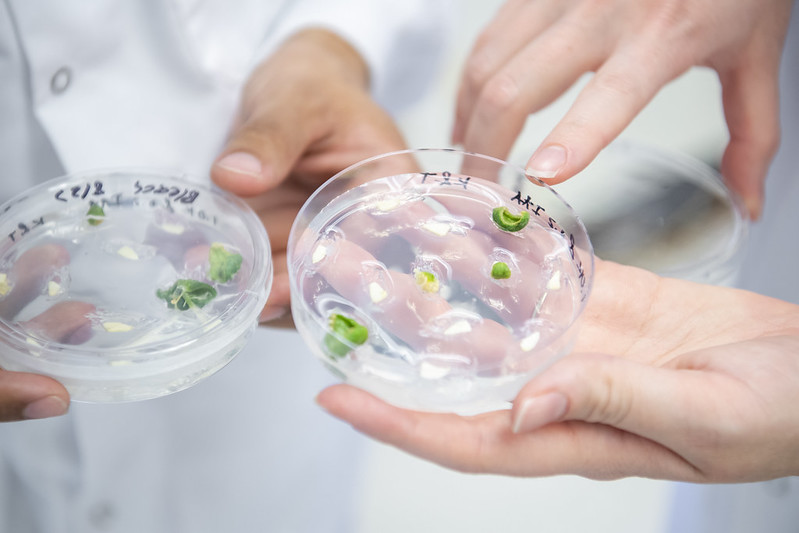Participating in research to find your true calling

Being involved in research as an undergraduate has been an important part of my college experience. It has helped to further my understanding not only of scientific research, but also of myself and what I’d like to pursue in the future. During my freshman year, I was part of the IGNITE Undergraduate Research Program, which matched me with a research lab on campus based on my personal study interests. While I was initially intimidated, the wonderful and patient people at Dr. Hind’s lab quickly made me feel like a welcome and contributing part of the team.
The time I spent there provided me with thorough training on the fundamentals of research work, from performing PCR to transforming bacteria to discussing new publications at lab meetings. Establishing this knowledge base especially came in handy for my more demanding courses, such as chemistry lab or plant genetics, as I was already familiar with some of the equipment and concepts involved.
My work experience in Dr. Hind’s lab opened up more opportunities for me to consider. Having prior training and understanding of laboratory work, particularly so early in my undergraduate career, made me a more competitive applicant for other opportunities. Equally important, the positive experience I had interacting with my IGNITE Program mentor and colleagues gave me a lot more confidence about pursuing opportunities in the campus’s scientific community. I eventually found a position with the Plant Pathology Clinic on campus, where I continue to grow my skills and knowledge.
Being a part of Dr. Hind’s Lab and the Plant Pathology Clinic has been instrumental in my development of a long-term career plan. After all, the best way to understand something is to experience it first-hand. If you have an interest in research or are unsure if research is the path for you, getting involved in one of the labs on campus for a semester is a fantastic idea. For those hesitant to dive in, I recommend CPSC 102, Research in Crop Sciences. It’s an excellent way to explore the different types of labs and ongoing projects currently in crop sciences, and even how to contact a lab you’re interested in working for.
I happily encourage you to take advantage of the research opportunities available to undergraduates. The ACES research community, especially in crop sciences, has been extremely welcoming and enriching for myself and many of my classmates. Some people fall in love with it, and others decide that there are other paths they’d prefer. Ultimately, participating in a research lab isn’t just about investigating the fascinating disciplines related to plant sciences. It’s also about investigating yourself, and where you would like to find yourself within the greater scientific community.